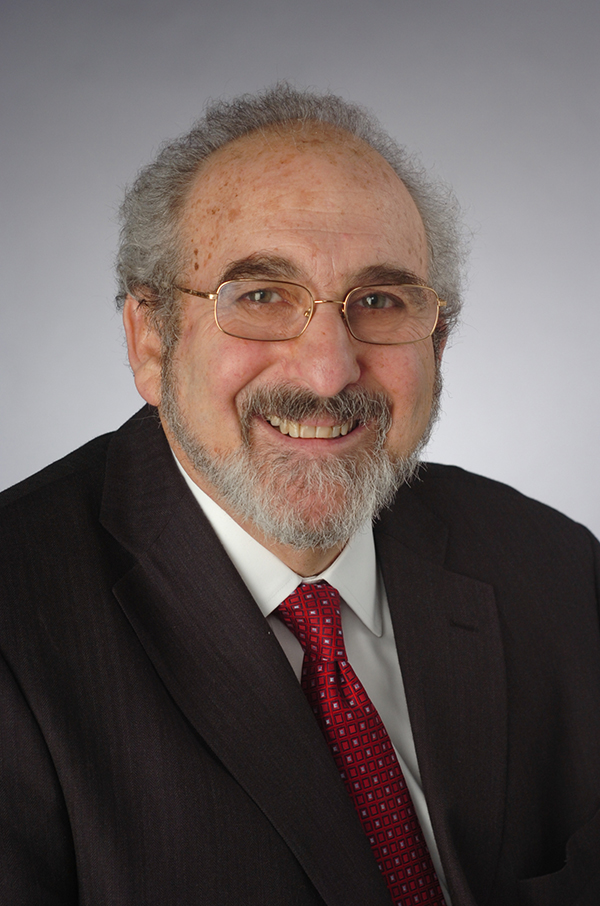
With membership representing 70 percent of House Republicans, the House Republican Study Committee (RSC) recently unveiled a plan to make drastic changes to Social Security and Medicare, including raising the full retirement age from 67 to 69 by 2033 for those born in 1960 or later and then to 70 and beyond by indexing the retirement age to increases in life expectancy.
When fully phased in, raising the retirement age to 69 would result in a 13- to 14-percent reduction in Social Security benefits for all workers regardless of when they first accept retired worker benefits.
Eric Kingson, a professor of social work at Syracuse University’s Falk College of Sport and Human Dynamics, is a founding co-director and current board chair of Social Security Works, the organization that launched and staffs the Strengthen Social Security Coalition. The RSC is also proposing cuts to Medicare and Medicaid, and Kingson says these reductions would be devastating to most Americans.
“This proposal would essentially privatize Medicare, reducing protections and increasing the financial risks of older persons and people with disabilities,” Kingson says. “The waiting period for new disability insurance beneficiaries would be doubled to five years, Medicaid benefits and eligibility will be slashed, and new provisions allowing Medicare to negotiate lower pharmaceutical prices will be eliminated.
“And ironically,” Kingson says, “the RSC’s plan would also extend the Trump administration’s 2017 tax cuts–a change that the Congressional Budget Office estimates would add $3.5 trillion dollars to the federal deficit from 2025 to 2034.”
Kingson is well-positioned to speak to the politics surrounding Social Security’s evolution, financing, and expansion of benefit protections. He served as policy advisor to two presidential commissions: the 1982-83 National Commission on Social Security Reform, and the 1994 Bipartisan Commission on Entitlement and Tax Reform. An active volunteer on the Obama campaign’s Retirement Security Policy Advisory Committee starting in July 2007, Kingson later served on the advisory committee to the Social Security Administration’s transition team.
Kingson is the author of several books and articles addressing the political and economic consequences of aging, retirement, and Social Security, including “Social Security Works for Everyone! Protecting and Expanding the Insurance Americans Love and Count On.” In that book co- authored with Nancy J. Altman, president of Social Security Works, Kingson and Altman make the case for an all-generations expansion of Social Security for Americans of all ages, races, genders, and ethnicities.
Here, Kingson answers three questions about the several prominent proposals:
Q: After the debt ceiling agreement, House Speaker Kevin McCarthy floated the idea of forming a bipartisan commission to study and propose cuts to Social Security, Medicare, and Medicaid. What do you think of this method to deal with the nation’s deficits and debt?
A: History tells us that these types of commissions fail. It has been tried four or five times during the past 25 years and not one reached the consensus necessary to move proposals through Congress. Even so, the proposal should be taken seriously because it’s an eye into the future of what Republicans will try to do if they capture the House, Senate, and presidency in the 2024 election.
Q: Why does Speaker McCarthy want to go this route?
A: A commission with fast-track authority is a call to make large cuts to Social Security, Medicare, and Medicaid outside the view of the public. It might protect politicians from taking responsibility for their votes, especially those who vote in favor of cutting these popular programs. (“I really didn’t have a choice, it was an ‘up or down’ vote.”)
But a commission with fast-track authority doesn’t protect the tens of millions of people–young, old, and in-between–whose economic and health security would be badly compromised. In fact, roughly two-thirds of young and middle-aged working Americans are facing personal retirement income crises.
If you think Social Security is too generous–retired workers’ benefits averaging about $1,800 a month in 2023 and even less for disabled workers, surviving children, and spouses–then a fast-track commission might be the way to go. But if not, we should be talking about expanding Social Security and health security protections.
Q: What is the best way for this issue to be addressed?
A: Consideration of changes, especially large ones, should be done through the normal House and Senate committee processes; that is, fully debated and allow for amendments if brought to the floor of the House and Senate. The various proposals that would be under consideration are too important to shut out public comment and bypass the normal order.
